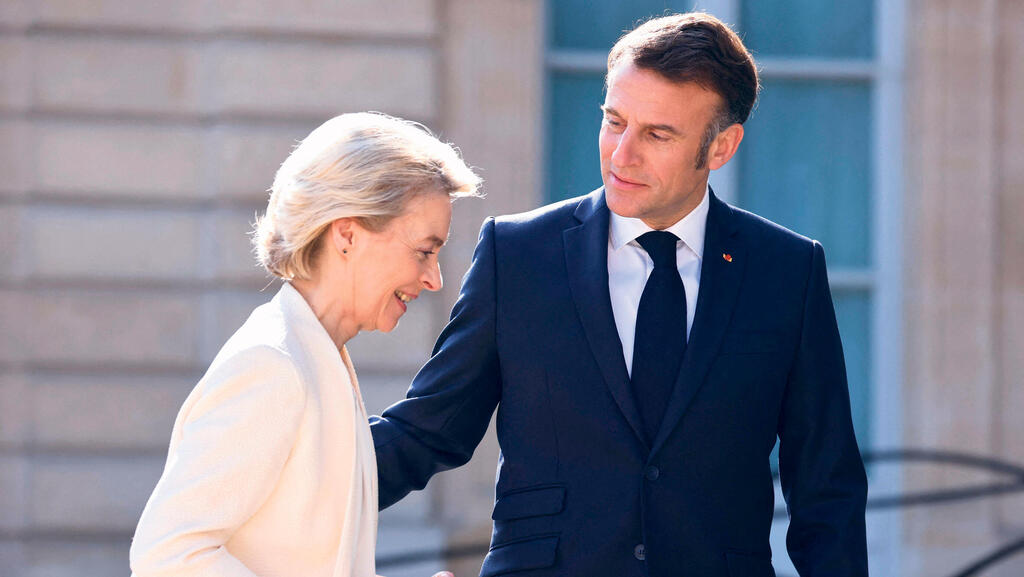
Tech cold war? Europe fights back against U.S. digital influence
Calls grow for a European alternative to American tech giants and Starlink.
Last week, the Dutch parliament reached a near-unanimous consensus: the current situation cannot continue. Eight resolutions on the issue passed with broad support, urging the government to shift away from software and hardware services provided by American technology companies in favor of European alternatives. Dutch lawmakers warned that continued reliance on U.S. tech giants weakens national expertise and digital sovereignty.
The Netherlands is not alone in this stance. Since Donald Trump’s return to the White House and his renewed economic confrontation with the European Union—particularly regarding Europe's sweeping technology regulations—calls to reduce dependence on American tech giants have intensified. European governments and companies are now seeking to move away from cloud services offered by Google, Amazon, and Microsoft, exploring local alternatives instead. At the same time, the EU has begun evaluating the development of a European alternative to Elon Musk’s Starlink satellite internet service, citing concerns over geopolitical risks and strategic independence.
1 View gallery


French President Emmanuel Macron and European Commission President Ursula von der Leyen
(Photo: AFP/ Ludovic Marin )
A Shift in Economic Relations
This shift challenges the long-standing transatlantic tech status quo and could revive Europe’s relatively small and dormant tech ecosystem. Since World War II, Europe—especially Western Europe—has been one of the United States’ closest allies, economically, militarily, and politically. Shared ideological values, particularly during the Cold War, fostered strong business ties, making Europe a prime destination for American exports, including technology.
Over the past two decades, these ties enabled U.S. tech giants to dominate Europe’s digital infrastructure, establishing themselves as the leading providers of cloud computing, search engines, social media, and other critical services—often at the expense of potential local alternatives.
For years, this situation was not seen as inherently problematic. The EU sought to regulate privacy and competition concerns without fundamentally altering the relationship. However, Trump’s return to office has triggered a reassessment of these ties. His warming relations with Russian President Vladimir Putin and threats to withdraw from NATO have pushed Europe toward greater defense autonomy. Economically, his decision to impose 25% tariffs on European steel and aluminum imports has prompted retaliatory threats from the EU, shaking the foundations of the free trade principles that have underpinned transatlantic economic prosperity for over half a century.
Tech Giants in the Crosshairs
Trump has also repeatedly criticized European regulations targeting American tech companies, calling them a “form of taxation.” His administration has supported tech giants in lobbying against EU regulations, further straining relations.
Now, European governments and businesses are responding. A Wired report indicates that multiple European companies and government entities are reassessing their reliance on American cloud providers. European cloud service providers, including Exoscale and Elastx, report a surge in demand from companies seeking to transition away from U.S. providers. Danish customers, in particular, have expressed concerns about American political influence, citing the Trump administration’s comments on Greenland as a catalyst for their decision.
Beyond cloud services, the European Union is also exploring alternatives to Musk’s Starlink satellite network. Tensions have escalated due to U.S. threats to cut satellite internet access in Ukraine. The EU has asked European satellite providers, such as Hispasat, Eutelsat, and SES, to assess their ability to support Ukraine’s connectivity. However, given Starlink’s extensive network of 7,000 satellites, no single European provider can yet match its capabilities. The EU’s planned Iris² project, a €10.6 billion initiative to develop a European satellite internet network by 2030, aims to change that.
This backlash against American tech dominance could mark the beginning of a European technology renaissance. With increased government backing and growing demand for local alternatives, European companies may finally have an opportunity to build competitive digital infrastructure, reducing the continent’s reliance on Silicon Valley’s biggest players.














